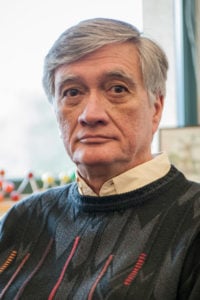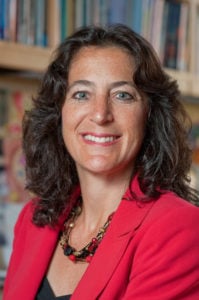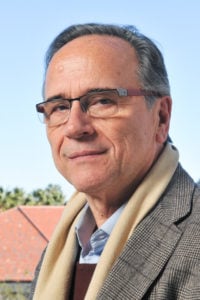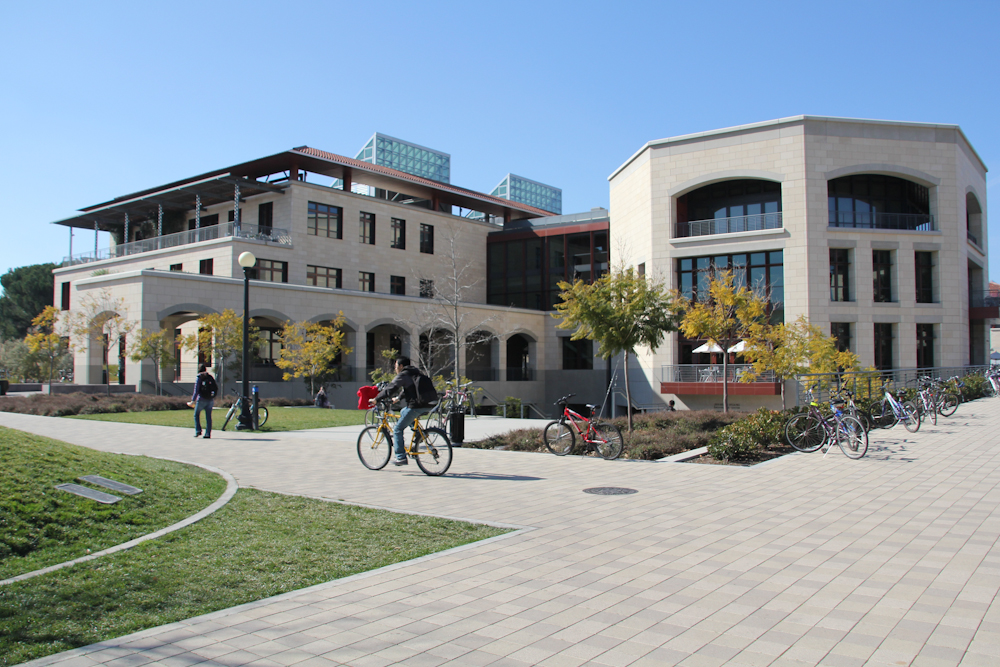On Feb. 8, the National Academy of Engineering (NAE) elected three Stanford professors to its class of 2017: Rodney Ewing M.S. ’72 Ph.D. ’74, professor of geological sciences; Andrea Goldsmith, professor of electrical engineering; and Leonidas Guibas Ph.D. ’76, professor of computer science and, by courtesy, electrical engineering.
According to the NAE, elected members have made exceptional contributions to “engineering research, practice or education, including, where appropriate, significant contributions to engineering literature” and “the pioneering of new and developing fields of technology, making major advancements in traditional fields of engineering or developing/implementing innovative approaches to engineering education.”

In addition to his role as professor of geological sciences, Ewing is also a senior fellow at the Freeman Spogli Institute for International Studies, serving as the Frank Stanton Professor in Nuclear Security in the Center for International Security and Cooperation. Ewing’s research focuses on “the long-term behavior of complex ceramic materials to assess their suitability for engineered nuclear waste sequestration.” In 2012, President Barack Obama named Ewing chair of the Nuclear Waste Technical Review Board and reappointed him for a second term in 2014.
Over the course of his career, Ewing has received several awards, including the Hawley Medal of the Mineralogical Association of Canada, a Guggenheim Fellowship, the Dana Medal of the Mineralogical Society of America in 2006 and the Lomonosov Gold Medal of the Russian Academy of Sciences. He also serves as an editor for several academic journals and was a co-editor and contributing writer for “Radioactive Waste Forms for the Future” and “Uncertainty Underground – Yucca Mountain and the Nation’s High-Level Nuclear Waste.”
Goldsmith is the Stephen Harris Professor in the School of Engineering as well as a faculty affiliate at the Stanford Neurosciences Institute. Her research focuses on “design, analysis and fundamental performance limits of wireless systems and networks, as well as in the application of communication theory and signal processing to neuroscience.”

Beyond the laboratory and classroom, Goldstein’s work has found applications in industry. As an inventor and consultant in industry, Goldstein has secured 28 patents and served as Chief Technological Officer in Plume WiFi and Quantenna, Inc. She has also authored and co-authored several books, including “Wireless Communication,” “MIMO Wireless Communications” and “Principles of Cognitive Radio.”
At Stanford, Goldsmith has also served as Chair of the Faculty Senate and currently serves on the Senate’s budget group, Committee on Research, Planning and Policy Board and Task Force on Women and Leadership. Her varied contributions to research, industry and representation in engineering have won her a range of awards such as the IEEE ComSoc Edwin H. Armstrong Achievement Award, Technical Achievement Awards in Communications Theory and in Wireless Communications and the Silicon Valley/San Jose Business Journal’s Women of Influence Award.

Guibas is the Paul Pigott Professor in the School of Engineering, leading the geometric computation group in the computer science department. He has served as a fellow for the Association for Computing Machinery and the IEEE, and has received the Allen Newell Award.
Guibas researches “algorithms for sensing, modeling, reasoning, rendering and acting on the physical world.” His work has found diverse applications in computer science, bioengineering and the environmental sciences. Guibas’s current research focuses on representations and algorithms for biological structures, and he is a member of the Computer Graphics and Artificial Intelligence Laboratories and Bio-X, as well as an affiliate of the Stanford Woods Institute for the Environment.
Ewing, Goldsmith and Guibas are among 84 new members of the NAE, which has 2,281 members in total.
Contact Sarah Wishingrad at swishing ‘at’ stanford.edu.
